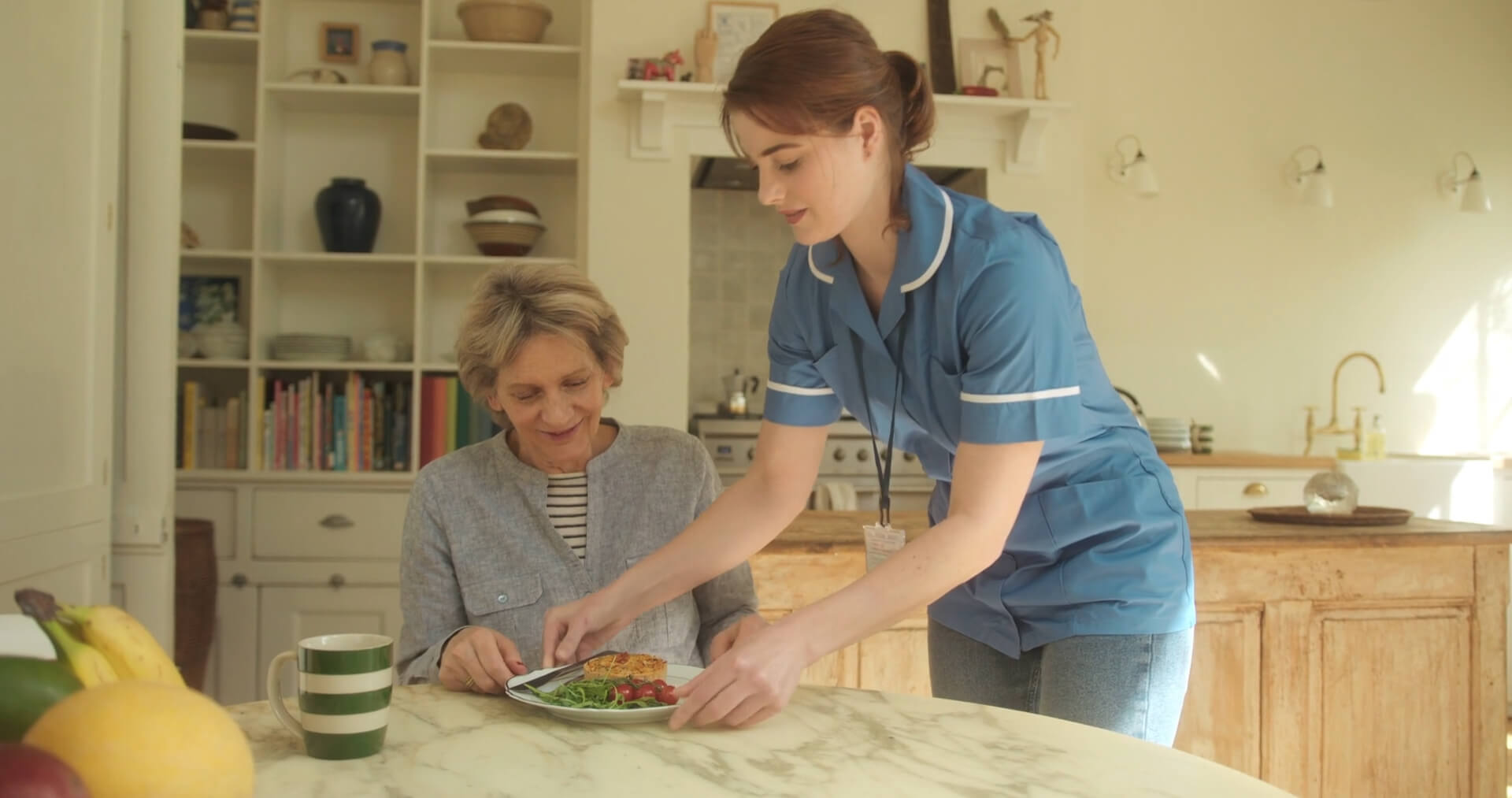Qualifying for home care in Florida requires meeting specific criteria. This article breaks down the essential financial and medical requirements, providing a clear guide to help you understand what it takes to access home care services in the state. Let’s get straight to the point: here’s what you need to know to determine eligibility for home care in Florida.
Table of Contents
ToggleFinancial Criteria
| Requirement | Details |
|---|---|
| Income Limit | Monthly income must be under $2,742 for a single applicant |
| Qualifying Income Trust | Excess income can be placed in a Qualifying Income Trust (QIT) |
| Personal Needs Allowance | $130 per month is not factored into the total countable income |
Income Limit
To qualify for home care services in Florida, your monthly income must not exceed $2,742 if you are a single applicant. This limit includes wages, Social Security benefits, pensions, veteran’s benefits, annuities, SSI payments, and IRA distributions.
Another great benefit for seniors with lower income is help with food costs.
Qualifying Income Trust (QIT)
If your income exceeds the $2,742 limit, you can still become eligible by placing the excess amount into a Qualifying Income Trust (QIT). This trust must be irrevocable and designate Florida as the beneficiary upon your death. Only the income that exceeds the limit needs to be placed in the trust, allowing you to still qualify for home care services.
Personal Needs Allowance
When calculating total countable income, Florida Medicaid allows a personal needs allowance of $130 per month. This means that $130 of your income each month is not considered when determining eligibility, providing some financial flexibility for personal expenses.
Asset Limits
| Requirement | Details |
|---|---|
| Asset Limit for Single Applicants | $2,000 in countable assets |
| Asset Limit for Married Applicants (Both Spouses Need Care) | $3,000 in countable assets |
| Home Exemption | One home with an equity value up to $688,000 |
| Automobile | One automobile is exempt regardless of value |
| Irrevocable Burial Trust | No specified limit |
Asset Limit for Single Applicants
For a single applicant, the asset limit to qualify for home care services in Florida is $2,000 in countable assets. Countable assets include cash, stocks, bonds, investments, and other financial resources that can be converted to cash.
Asset Limit for Married Applicants
If both spouses require care, the combined asset limit is $3,000 in countable assets. This allows married couples some flexibility, but they still must meet stringent financial criteria to qualify.
Home Exemption
A primary home is exempt from being counted as a financial asset if the equity value is up to $688,000. The home remains exempt as long as the applicant, their spouse, or a dependent relative lives there, or if the applicant intends to return home.
Automobile
One automobile is exempt from being counted as a financial asset, regardless of its value. This exemption allows applicants to maintain a vehicle without impacting their eligibility for home care services.
Irrevocable Burial Trust
An irrevocable burial trust is another exempt asset, with no specified limit. This trust can cover burial and funeral expenses without affecting eligibility for home care services.
Medical Assessment
| Requirement | Details |
|---|---|
| CARES Assessment | Conducted by a CARES nurse or assessor to determine the level of care |
| Level of Care | Must require a nursing home level of care to qualify |
| Form 3008 | Medical Certification for Medicaid Long-term Care Services and Patient Transfer Form |
CARES Assessment
The Comprehensive Assessment and Review for Long-Term Care Services (CARES) program is responsible for determining the medical eligibility for home care services. A CARES nurse or assessor conducts a detailed assessment to evaluate the applicant’s health condition and long-term care needs. This assessment helps in deciding the appropriate level of care and the most suitable care setting.
Level of Care
To qualify for home care services, applicants must require a nursing home level of care. This means that the individual needs assistance with daily activities and medical supervision that typically necessitate a nursing home environment. The CARES assessment ensures that only those with significant medical needs are eligible for home care services.
Form 3008
Applicants must complete the Medical Certification for Medicaid Long-term Care Services and Patient Transfer Form (Form 3008). This form must be filled out by a licensed medical provider in Florida, such as a physician, Advanced Practice Registered Nurse, or Physician Assistant. The completed form is submitted to the Aging and Disability Resource Center (ADRC), which then facilitates the CARES assessment process.
Application Process
| Steps | Details |
|---|---|
| 1. Initial Contact | Contact the Aging and Disability Resource Center (ADRC) to express interest in-home care services |
| 2. Complete Form 3008 | Submit the Medical Certification for Medicaid Long-term Care Services and Patient Transfer Form |
| 3. Medicaid Application | Apply for Medicaid through the Department of Children and Families (DCF) |
| 4. CARES Assessment | Undergo the CARES assessment to determine medical eligibility |
| 5. Welcome Packet | Receive the welcome packet from the Agency for Health Care Administration (AHCA) if eligible |
Step 1 – Initial Contact
The first step in the application process is to contact the Aging and Disability Resource Center (ADRC). This initial contact involves expressing interest in enrolling in the Statewide Medicaid Managed Care Long-Term Care (SMMC LTC) program. The ADRC will guide you through the initial steps and provide the necessary information.
Step 2 – Complete Form 3008
You must complete the Medical Certification for Medicaid Long-term Care Services and Patient Transfer Form (Form 3008). This form must be filled out by your medical provider, such as a licensed physician, Advanced Practice Registered Nurse, or Physician Assistant. Once completed, submit the form to the ADRC to move forward in the application process.
Step 3 – Medicaid Application
Next, apply for Medicaid through the Department of Children and Families (DCF). The DCF will evaluate your financial eligibility for the program. You can apply online, by mail, or in person. Make sure to provide all required documentation to facilitate the process.
Step 4 – CARES Assessment
After submitting Form 3008, you will undergo the Comprehensive Assessment and Review for Long-Term Care Services (CARES) assessment. This in-person assessment, conducted by CARES staff, determines your medical eligibility and the level of care required. The assessment ensures that you meet the necessary criteria for home care services.
Step 5 – Welcome Packet
If both financial and medical eligibility requirements are met, you will receive a welcome packet from the Agency for Health Care Administration (AHCA). The packet includes a letter and a brochure with information about the SMMC LTC program and instructions on how to select a care plan. This packet signifies that you have been approved for home care services and provides the next steps for enrollment.
Additional Resources and Support
| Resource | Details |
|---|---|
| Aging and Disability Resource Centers (ADRCs) | Offer information, assistance, and referral services for seniors and disabled individuals |
| SHINE (Serving Health Insurance Needs of Elders) | Provides free Medicare and health insurance counseling |
| Area Agencies on Aging (AAAs) | Local agencies that help seniors and caregivers with various services and support |
| Long-Term Care Ombudsman Program | Advocates for residents of long-term care facilities and helps resolve complaints |
| Florida Department of Elder Affairs | Oversees various programs and services for seniors, including Medicaid and home care |
Aging and Disability Resource Centers (ADRCs)
ADRCs are a vital resource for seniors and disabled individuals seeking information and assistance with long-term care services. They offer a range of services including information, assistance, and referrals to help navigate the complexities of home care eligibility and other support programs.
SHINE (Serving Health Insurance Needs of Elders)
SHINE provides free, unbiased counseling on Medicare, Medicaid, and other health insurance issues. Volunteers help seniors understand their benefits, compare plans, and resolve problems with coverage. This service is crucial for ensuring that seniors maximize their health insurance benefits and receive the care they need.
Area Agencies on Aging (AAAs)
Local Area Agencies on Aging provide a wide array of services and support for seniors and their caregivers. These agencies can assist with everything from meal programs and transportation services to caregiver support and housing assistance. They play a critical role in helping seniors maintain their independence and quality of life.
Long-Term Care Ombudsman Program
The Long-Term Care Ombudsman Program advocates for residents of nursing homes, assisted living facilities, and adult family care homes. Ombudsmen investigate and resolve complaints, ensuring that residents’ rights are protected and that they receive high-quality care. This program is essential for safeguarding the well-being of those in long-term care settings.
Florida Department of Elder Affairs
The Florida Department of Elder Affairs oversees various programs and services for seniors, including Medicaid and home care services. They work in partnership with other state agencies to ensure that seniors receive the support and care they need. The department provides valuable resources and guidance for navigating the state’s long-term care system.
FAQ
What are the different types of home care services available in Florida?
Florida offers a range of home care services, including personal care assistance, homemaker services, respite care, home health aide services, skilled nursing, and therapy services. These services can be tailored to meet the specific needs of individuals, ensuring they receive the appropriate level of care at home.
How long does the application process for home care services typically take?
The application process can vary depending on several factors, including the completeness of the submitted documents and the scheduling of the CARES assessment. Typically, the process can take several weeks to a few months from the initial contact to receiving approval and the welcome packet.
Are there any costs associated with applying for home care services in Florida?
There are no costs associated with applying for home care services through Medicaid in Florida. The assessments and application processes are provided at no cost to the applicant. However, some services may have co-payments or cost-sharing requirements depending on the individual’s financial situation and the specific Medicaid program they are enrolled in.
What if my application for home care services is denied?
If your application is denied, you have the right to request a fair hearing to appeal the decision. You can contact the Department of Children and Families (DCF) or the Agency for Health Care Administration (AHCA) to initiate the appeals process and provide additional information or clarification to support your case.
Can I receive home care services if I am already in a nursing home?
Yes, it is possible to transition from a nursing home to receiving home care services if you meet the eligibility criteria for home care. The CARES program can assess your situation and determine if transitioning to home care is appropriate based on your medical needs and financial situation. This process involves a reassessment to ensure you receive the necessary support and services at home.
Conclusion
Qualifying for home care in Florida involves meeting specific financial and medical criteria. Understanding these requirements is essential for accessing necessary support services. By adhering to the outlined income and asset limits, completing the necessary medical assessments, and navigating the application process, individuals can effectively secure home care services in the state. Utilize available resources and support programs to assist in this journey and ensure all requirements are met for eligibility.















